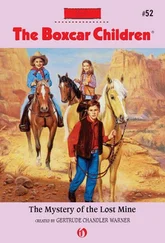Charles Warner - In The Levant
Здесь есть возможность читать онлайн «Charles Warner - In The Levant» — ознакомительный отрывок электронной книги совершенно бесплатно, а после прочтения отрывка купить полную версию. В некоторых случаях можно слушать аудио, скачать через торрент в формате fb2 и присутствует краткое содержание. Жанр: Путешествия и география, История, foreign_edu, foreign_antique, foreign_prose, на английском языке. Описание произведения, (предисловие) а так же отзывы посетителей доступны на портале библиотеки ЛибКат.
- Название:In The Levant
- Автор:
- Жанр:
- Год:неизвестен
- ISBN:нет данных
- Рейтинг книги:4 / 5. Голосов: 1
-
Избранное:Добавить в избранное
- Отзывы:
-
Ваша оценка:
- 80
- 1
- 2
- 3
- 4
- 5
In The Levant: краткое содержание, описание и аннотация
Предлагаем к чтению аннотацию, описание, краткое содержание или предисловие (зависит от того, что написал сам автор книги «In The Levant»). Если вы не нашли необходимую информацию о книге — напишите в комментариях, мы постараемся отыскать её.
In The Levant — читать онлайн ознакомительный отрывок
Ниже представлен текст книги, разбитый по страницам. Система сохранения места последней прочитанной страницы, позволяет с удобством читать онлайн бесплатно книгу «In The Levant», без необходимости каждый раз заново искать на чём Вы остановились. Поставьте закладку, и сможете в любой момент перейти на страницу, на которой закончили чтение.
Интервал:
Закладка:
We are leaving behind us on the right the country of Samson, in which he passed his playful and engaging boyhood, and we look wistfully towards it. Of Zorah, where he was born, nothing is left but a cistern, and there is only a wretched hamlet to mark the site of Timnath, where he got his Philistine wife. “Get her for me, for she pleaseth me well,” was his only reply to the entreaty of his father that he would be content with a maid of his own people.
The country gets wilder and more rocky as we ascend. Down the ragged side paths come wretched women and girls, staggering under the loads of brushwood which they have cut in the high ravines; loads borne upon the head that would tax the strength of a strong man. I found it no easy task to lift one of the bundles. The poor creatures were scantily clad in a single garment of coarse brown cloth, but most of them wore a profusion of ornaments; strings of coins, Turkish and Arabic, on the head and breast, and uncouth rings and bracelets. Farther on a rabble of boys besets us, begging for backsheesh in piteous and whining tones, and throwing up their arms in theatrical gestures of despair.
All the hills bear marks of having once been terraced to the very tops, for vines and olives. The natural ledges seem to have been humored into terraces and occasionally built up and broadened by stone walls; but where the hill was smooth, traces of terraces are yet visible. The grape is still cultivated low down the steeps, and the olives straggle over some of the hills to the very top; but these feeble efforts of culture or of nature do little to relieve the deserted aspect of the scene.
We lunch in a pretty olive grove, upon a slope long ago terraced and now grass-grown and flower-sown; lovely vistas open into cool glades, and paths lead upward among the rocks to inviting retreats. From this high perch in the bosom of the hills we look off upon Ramleh, Jaffa, the broad Plain of Sharon, and the sea. A strip of sand between the sea and the plain produces the effect of a mirage, giving to the plain the appearance of the sea. It would be a charming spot for a country-seat for a resident of Jerusalem, although Jerusalem itself is rural enough at present; and David and Solomon may have had summer pavilions in these cool shades in sight of the Mediterranean. David himself, however, perhaps had enough of this region—when he dodged about in these fastnesses between Ramah and Gath, from the pursuit of Saul—to make him content with a city life. There is nothing to hinder our believing that he often enjoyed this prospect; and we do believe it, for it is already evident that the imagination must be called in to create an enjoyment of this deserted land. David no doubt loved this spot. For David was a poet, even at this early period when his occupation was that of a successful guerilla; and he had all the true poet’s adaptability, as witness the exquisite ode he composed on the death of his enemy Saul. I have no doubt that he enjoyed this lovely prospect often, for he was a man who enjoyed heartily everything lovely. He was in this as in all he did a thorough man; when he made a raid on an Amorite city, he left neither man, woman, nor child alive to spread the news.
We have already mounted over two thousand feet. The rocks are silicious limestone, crumbling and gray with ages of exposure; they give the landscape an ashy appearance. But there is always a little verdure amid the rocks, and now and then an olive-tree, perhaps a very old one, decrepit and twisted into the most fantastic form, as if distorted by a vegetable rheumatism, casting abroad its withered arms as if the tree writhed in pain. On such ghostly trees I have no doubt the five kings were hanged. Another tree or rather shrub is abundant, the dwarf-oak; and the hawthorn, now in blossom, is frequently seen. The rock-rose—a delicate white single flower—blooms by the wayside and amid the ledges, and the scarlet anemone flames out more brilliantly than ever. Nothing indeed could be more beautiful than the contrast of the clusters of scarlet anemones and white roses with the gray rocks.
We soon descend into a valley and reach the site of Kirjath-Jearim, which has not much ancient interest for me, except that the name is pleasing; but on the other side of the stream and opposite a Moslem fountain are the gloomy stone habitations of the family of the terrible Abu Ghaush, whose robberies of travellers kept the whole country in a panic a quarter of a century ago. He held the key of this pass, and let no one go by without toll. For fifty years he and his companions defied the Turkish government, and even went to the extremity of murdering two pashas who attempted to pass this way. He was disposed of in 1846, but his descendants still live here, having the inclination but not the courage of the old chief. We did not encounter any of them, but I have never seen any buildings that have such a wicked physiognomy as their grim houses.
Near by is the ruin of a low, thick-walled chapel, of a pure Gothic style, a remnant of the Crusaders’ occupation. The gloomy wady has another association; a monkish tradition would have us believe it was the birthplace of Jeremiah; if the prophet was born in such a hard country it might account for his lamentations. As we pass out of this wady, the German driver points to a forlorn village clinging to the rocky slope of a hill to the right, and says,—
“That is where John Baptist was born.”
The information is sudden and seems improbable, especially as there are other places where he was born.
“How do you know?” we ask.
“O, I know ganz wohl ; I been five years in dis land, and I ought to know.”
Descending into a deep ravine we cross a brook, which we are told is the one that flows into the Valley of Elah, the valley of the “terebinth” or button trees; and if so, it is the brook out of which David took the stone that killed Goliath. It is a bright, dashing stream. I stood upon the bridge, watching it dancing down the ravine, and should have none but agreeable recollections of it, but that close to the bridge stood a vile grog-shop, and in the doorway sat the most villanous-looking man I ever saw in Judæa, rapacity and murder in his eyes. The present generation have much more to fear from him and his drugged liquors than the Israelite had from the giant of Gath.
While the wagon zigzags up the last long hill, I mount by a short path and come upon a rocky plateau, across which runs a broad way, on the bed rock, worn smooth by many centuries of travel: by the passing of caravans and armies to Jerusalem, of innumerable generations of peasants, of chariots, of horses, mules, and foot-soldiers; here went the messengers of the king’s pleasure, and here came the heralds and legates of foreign nations; this great highway the kings and prophets themselves must have trodden when they journeyed towards the sea; for Ï cannot learn that the Jews ever had any decent roads, and perhaps they never attained the civilization necessary to build them. We have certainly seen no traces of anything like a practicable ancient highway on this route.
Indeed, the greatest wonder to me in the whole East is that there has not been a good road built from Jaffa to Jerusalem; that the city sacred to more than half the world, to all the most powerful nations, to Moslems, Jews, Greeks, Roman Catholics, Protestants, the desire of all lands, and the object of pilgrimage with the delicate and the feeble as well as the strong, should not have a highway to it over which one can ride without being jarred and stunned and pounded to a jelly; that the Jews should never have made a road to their seaport; that the Romans, the road-builders, do not seem to have constructed one over this important route. The Sultan began this one over which we have been dragged, for the Empress Eugenie. But he did not finish it; most of the way it is a mere rubble of stones. The track is well engineered, and the road bed is well enough; soft stone is at hand to form an excellent dressing, and it might be, in a short time, as good a highway as any in Switzerland, if the Sultan would set some of his lazy subjects to work out their taxes on it. Of course, it is now a great improvement over the old path for mules; but as a carriage road it is atrocious. Imagine thirty-six miles of cobble pavement, with every other stone gone and the remainder sharpened!
Читать дальшеИнтервал:
Закладка:
Похожие книги на «In The Levant»
Представляем Вашему вниманию похожие книги на «In The Levant» списком для выбора. Мы отобрали схожую по названию и смыслу литературу в надежде предоставить читателям больше вариантов отыскать новые, интересные, ещё непрочитанные произведения.
Обсуждение, отзывы о книге «In The Levant» и просто собственные мнения читателей. Оставьте ваши комментарии, напишите, что Вы думаете о произведении, его смысле или главных героях. Укажите что конкретно понравилось, а что нет, и почему Вы так считаете.












